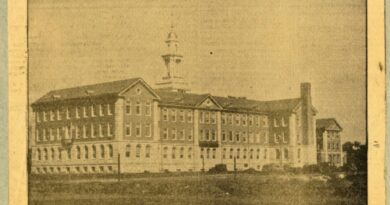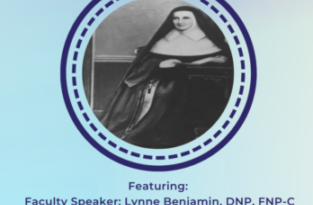A Student’s Perspective on the Agora Series: “Exploring Biases – Education and Physician Assistant Studies Program”
Written by Sam Gilbert
I recently attended the Agora Series: “Exploring Biases – Education and Physician Assistant Studies Program” presented by Professor Gonzalez of the education department, and Professor Curilla of the physician assistant studies department.
The Physician Assistant program was looking at the biases of the physician assistant faculty and the rest of the staff. They chose to do this before the next interview process to look at the diversity among the students, which was found to be lacking. They decided to accomplish this goal by utilizing Bafa Bafa, which is a simulation to make participants experience what stereotypes feel like in real time. In other words, how it feels to be alienated and the confusion of being different from others around you.
So how is Bafa Bafa implemented? Bafa Bafa uses two different groups, Alphans and Betans, who have two very different made-up cultures. Alphans have a relationship-oriented, high context, and a strong ingroup outgroup culture. Betans have a highly competitive trading culture. Betans also converse in a foreign language made up of a mix of consonants and vowels. Both groups are given 30 to 40 minutes to learn about their culture, to the point where participants forget their real-world culture. There is then a switch, where one person goes from Alphan to Betan and vice versa. When Alphans come to the Betan culture, they are often intimidated and withdraw from the culture, creating an impossible communication barrier. When visitors come from another culture, the people in the current culture expect the visitors to assimilate. Instead of assimilating, the visitor would implement their own culture and self in the different culture.
There were three important themes found from the study: perspective, communication, and mutual vulnerability. Perspective encompasses background and prior experiences, while communication embodies whether people are talking about the same thing, and finally, the mutual vulnerability of both groups, where they are comfortable explaining their respective cultures. With these findings, the PA admissions process made some minor changes.
There are many parts to the PA admissions process, but the focus was on the mini-interviewing. Mini-interviews are a series of short interviews used by PA schools that last typically 6-10 minutes. The primary themes mentioned were working together, critical thinking, communication, responsiveness, and self-awareness. Each candidate goes into a room with a staff member and is given a different scenario. Then, each person takes their own background experiences into the role, whether they be a staff member or a candidate. After performing the scenario they are given, the candidate was typically not asked to reflect on the experiences and factors that contribute to the way they handle the given scenario. However, due to this study, the Physician Assistant’s program decided to introduce this statement at the end of the scenarios: “Please reflect on what factors contributed to the way you handled the scenario.” This allows a candidate to explain their past experiences, for example, if the candidate was found to be talking loudly during the scenario, after the scenario, it was found that the candidate is a naturally loud speaker.
Future steps would look like introducing the interview process to the School of Pharmacy, and a follow up session with the PA Program to see how the additional question at the end made a difference for the diversity of the accepted students.
Are you interested in research? Check out Symposium Day April 23rd, 2025! Interested in attending the Agora Series? They take place in McDonough 213 from 12pm-1pm or 3pm-4pm. The next one is “Designing Precision-Targeted Ligands to Inhibit Epidermal Growth Factor Receptor for Treatment of Lung Cancer” by Professor Asher Brandt and “Cardiac Arrhythmias in Women. The Impact of Estrogen” by Professor Dalia Gierdrimiene on November 13th. The last date for this semester is Tuesday December 3rd from 3pm-4pm, and there will be more in the spring of 2025.




